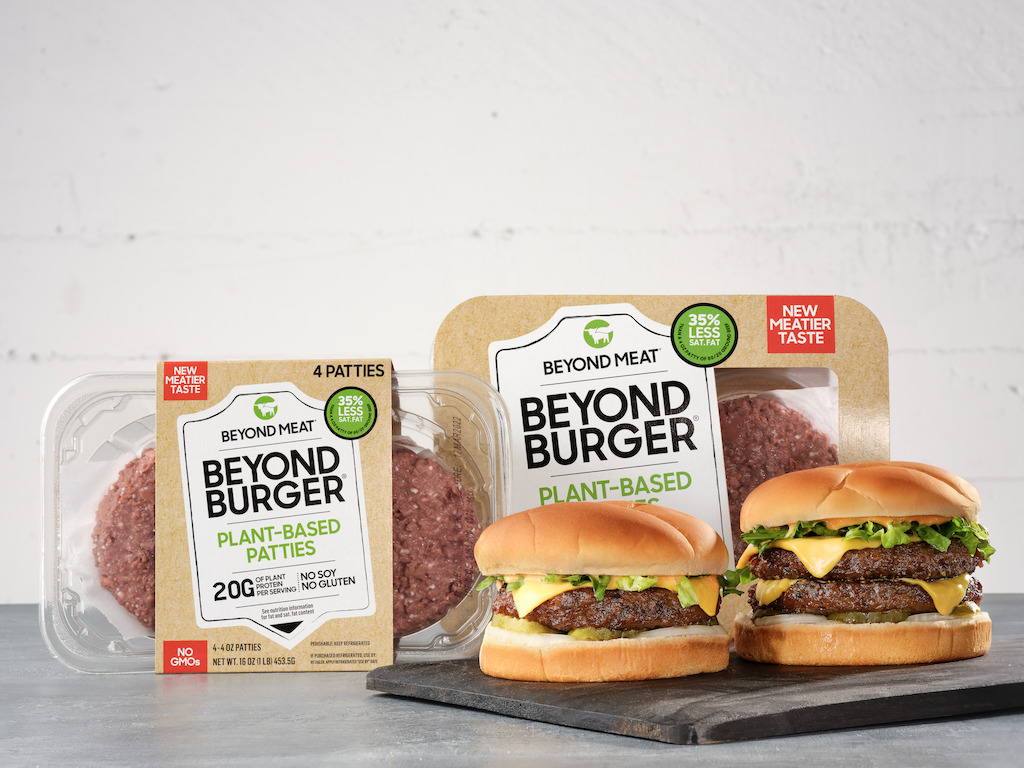Food Scientists Look For Better Ways To Develop Healthier & Tastier Plant-Based Alternative Proteins
4 Mins Read
Food scientists have set out to find new ways to make plant-based proteins more nutritious and taste better. In a new paper exploring the topic, researchers say that they hope to take a multidisciplinary approach to improve the health profile of plant-based meat, fish, milk, cheese and egg products while also tackling the problem of cost, convenience, and the flavour and mouthfeel to reach mass consumer adoption.
As plant-based foods become increasingly popular, researchers from the University of Massachusetts Amherst are aiming to improve the health, flavour and price point of vegan protein analogues. Published in the Nature journal Science of Food, the paper outlines the complex task at hand from a food science perspective to assemble and improve plant-based products.
“A lot of academics are starting to work in this area and are not familiar with the complexity of animal products and the physicochemical principles you need in order to assemble plant-based ingredients into these products, each with their own physical, functional, nutritional and sensory attributes,” explained lead author of the paper and renowned food scientist Professor David Julian McClements, whose background is in food design and nanotechnology.

There’s a huge amount of innovation and investment in this area, and I get contacted frequently by different startup companies who are trying to make plant-based fish or eggs or cheese, but who often don’t have a background in the science of foods.
Professor David Julian McClements
Currently, McClements and his team, which includes paper co-author and assistant professor Lutz Grossmann, will be leading the research on “exploring the science behind designing better plant-based protein”. The team is being funded by the USDA National Institute of Food and Agriculture, as well as alternative protein nonprofit Good Food Institute (GFI).
“There’s a huge amount of innovation and investment in this area, and I get contacted frequently by different startup companies who are trying to make plant-based fish or eggs or cheese, but who often don’t have a background in the science of foods,” said McClements, noting the record US$7 billion sales in the U.S. plant-based retail sector in 2020.
McClements says that while the demand has surged and novel plant-based products are proliferating, many of the items on the market “not necessarily better than an omnivore diet from a nutritional perspective,” highlighting the lack of some micronutrients such as vitamin D, calcium and zinc, as well as other considerations such as digestibility and essential amino acid content.
“It should be noted that many plant-based foods are highly processed and contain numerous additives, which is undesirable to many consumers. Consequently, there is a need for more research on the development of processed plant-based foods that contain fewer ingredients and involve less processing,” wrote the UMass Amherst team in the paper.

There is a need for more research on the development of processed plant-based foods that contain fewer ingredients and involve less processing.
McClements & Grossmann (2021)
“We’re trying to make processed food healthier,” explained McClements. “We aim to design them to have all the vitamins and minerals you need and have health-promoting components like dietary fibre and phytochemicals so that they taste good and they’re convenient and they’re cheap and you can easily incorporate them into your life.”
Some plant-based brands have already begun responding to the clean label movement, with the likes of Beyond Meat and Heura both reformulating their meat analogues with a better health profile that contains lower saturated fat and added micronutrients.
The UMass Amherst team will also explore the “fundamental attributes of plant-derived ingredients and how they can be assembled into structures resembling those found in animal products”. By highlighting the chemical, physical and functional properties of plant ingredients, they hope to design and develop products that fare better in terms of functionality, cost, appearance, taste and texture.
Lead image courtesy of Tofurky.




